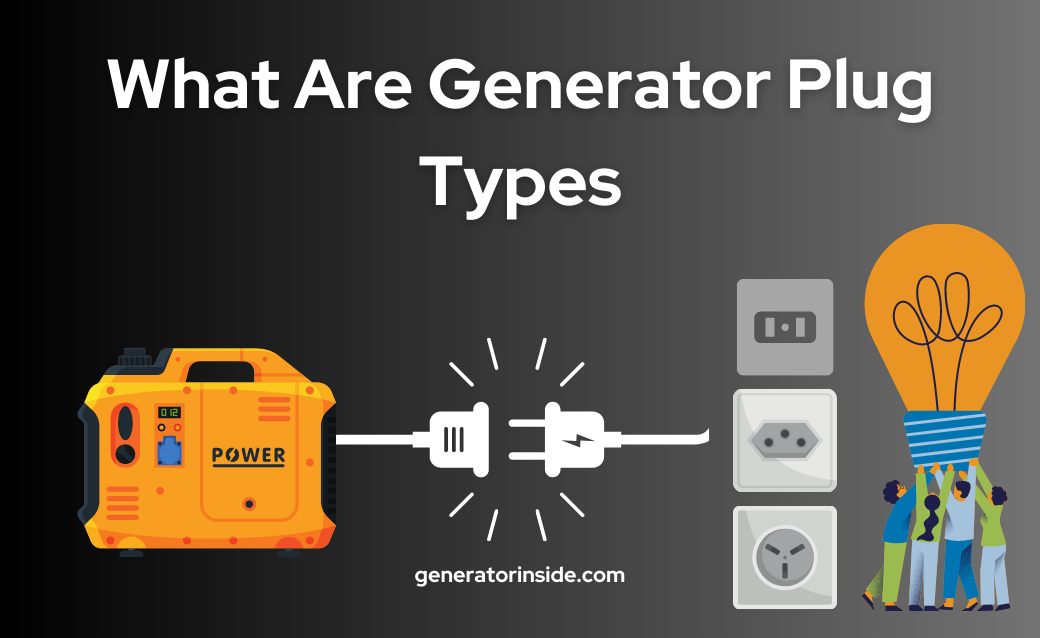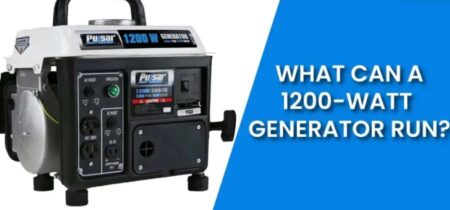
When it comes to powering your electrical devices and appliances, having the right generator plug type is important. Different generators come with different types of plugs, and using the wrong plug can damage both your generator and your equipment. In this blog, we will discuss the various generator plug types and their applications.
Generator Plug Types
- NEMA L5-30 Plug
This is a 30-amp plug that is commonly used for small generators. It has three prongs and is rated for 125 volts. This plug is compatible with devices that require up to 3,750 watts of power.
- NEMA L14-30 Plug
This plug is commonly found on larger generators and is rated for 125/250 volts. It has four prongs, with two hot wires, a neutral wire, and a ground wire. This plug can handle devices that require up to 7,500 watts of power.
- NEMA L6-30 Plug
This is a 30-amp plug that is commonly used for welding machines and other heavy-duty equipment. It has three prongs and is rated for 250 volts. This plug can handle devices that require up to 7,500 watts of power.
- NEMA L6-20 Plug
This is a 20-amp plug that is commonly used for small generators and power tools. It has three prongs and is rated for 250 volts. This plug can handle devices that require up to 5,000 watts of power.
- NEMA L5-20 Plug
This is a 20-amp plug that is commonly used for small generators and power tools. It has three prongs and is rated for 125 volts. This plug can handle devices that require up to 2,500 watts of power.
- NEMA TT-30 Plug
This is a 30-amp plug that is commonly used for RVs and camping trailers. It has three prongs and is rated for 125 volts. This plug can handle devices that require up to 3,750 watts of power.
- NEMA 5-20 Plug
This is a standard 20-amp plug that is commonly found in homes and offices. It has two prongs and is rated for 125 volts. This plug can handle devices that require up to 2,500 watts of power.
- NEMA 5-15 Plug
This is a standard 15-amp plug that is commonly found in homes and offices. It has two prongs and is rated for 125 volts. This plug can handle devices that require up to 1,875 watts of power.
Factors to Consider While Choosing a Generator Plug Type
When choosing a generator plug type, there are several important factors to consider. The right plug can ensure that your electrical devices and appliances receive the correct amount of power, while the wrong plug can damage your equipment or even cause a fire. In this article, we will discuss the factors to consider when selecting a generator plug type.
- Power Requirements
The first factor to consider when choosing a generator plug type is the power requirements of your devices and appliances. Different devices and appliances require different amounts of power, and you need to choose a plug that can handle the required amount of power. You can determine the power requirements of your devices by checking their wattage ratings. It is important to note that some devices require more power to start up than they do to operate continuously.
- Voltage and Amperage Requirements
Another important factor to consider when choosing a generator plug type is the voltage and amperage requirements of your generator. The voltage and amperage ratings of your generator will determine the type of plug that you need to use. Using the wrong plug can damage your equipment and even cause a fire.
- Type of Generator
The type of generator that you have will also determine the type of plug that you need to use. There are two main types of generators: portable generators and standby generators. Portable generators are designed to be moved around and used in different locations, while standby generators are permanently installed and automatically turn on when the power goes out. Standby generators usually require a larger plug than portable generators.
- Type of Device
The type of device that you are using with your generator will also determine the type of plug that you need to use. Different devices require different types of plugs, and you need to choose the right plug to ensure that your device operates safely and efficiently. For example, power tools may require a different plug than a refrigerator or a computer.
- Environment
The environment in which you will be using your generator is also an important factor to consider when choosing a plug type. If you will be using your generator outdoors, you need to choose a plug that is weather-resistant and can withstand exposure to the elements. If you will be using your generator in a dusty or dirty environment, you need to choose a plug that is designed to prevent dust and debris from getting inside.
- Safety
Safety should always be a top priority when choosing a generator plug type. You need to choose a plug that is designed to prevent electrical shock and other hazards. It is also important to follow the manufacturer’s instructions and to use the plug correctly to avoid accidents.
- Compatibility
Finally, it is important to ensure that the plug type you choose is compatible with your generator and your devices. Some plugs may not be compatible with certain generators or devices, and you need to choose a plug that is designed to work with your specific equipment.
Therefore, choosing the right generator plug type is essential for ensuring the safe and reliable operation of your electrical devices and appliances. When choosing a plug type, you need to consider factors such as power requirements, voltage, and amperage requirements, type of generator, type of device, environment, safety, and compatibility. By taking these factors into account, you can choose the right plug for your specific needs and ensure that your generator operates safely and efficiently.
Consequences of Using the Wrong Plug for Generator
Using the wrong plug for your generator can have serious consequences, including damage to your electrical devices, injury, and even death. Here are some of the potential consequences of using the wrong plug for your generator:
- Damage to Electrical Devices
Using the wrong plug for your generator can result in too much or too little power being delivered to your electrical devices. This can damage the devices or cause them to malfunction. In some cases, the damage may be irreversible and you may need to replace the device.
- Overloading the Circuit
Using the wrong plug for your generator can also overload the circuit and cause a short circuit or a fire. This can happen when you try to connect too many devices to your generator, or when you try to use devices that require more power than your generator can provide. Overloading the circuit can also damage the generator itself, and you may need to replace it.
- Electrical Shock
Using the wrong plug for your generator can also increase the risk of electrical shock. This can happen if the plug is not properly grounded if there’s a loose connection, or if the plug is damaged. Electrical shock can be very dangerous and can cause injury or even death.
- Carbon Monoxide Poisoning
If you are using a generator indoors, using the wrong plug can also increase the risk of carbon monoxide poisoning. This can happen if the generator is not properly vented, if it is placed too close to a window or door, or if it is used in a small, enclosed space. Carbon monoxide is a silent killer and can cause dizziness, nausea, headaches, and even death.
Hence, If you are not sure which plug to use, consult the manufacturer’s instructions or seek advice from a qualified electrician.
Choosing Right Generator Plug Types
In addition to the standard generator plug types listed above, there are also several adapters and converters available that allow you to use different types of plugs with your generator. These can be useful if you have a generator with a different plug than your equipment requires, or if you need to use your generator with a variety of devices.
Conclusion
In conclusion, generator plug types are an important consideration when selecting a generator for your needs. Understanding the various plug types and their applications can help you choose the right generator for your specific requirements. Always make sure to follow the manufacturer’s recommendations and use the appropriate plug for your equipment to avoid damage and ensure safe and reliable operation.
Also Read:
Why is my Generator Blowing White Smoke | Best Guide 2023
How to Connect a Generator to a House Without Transfer Switch








